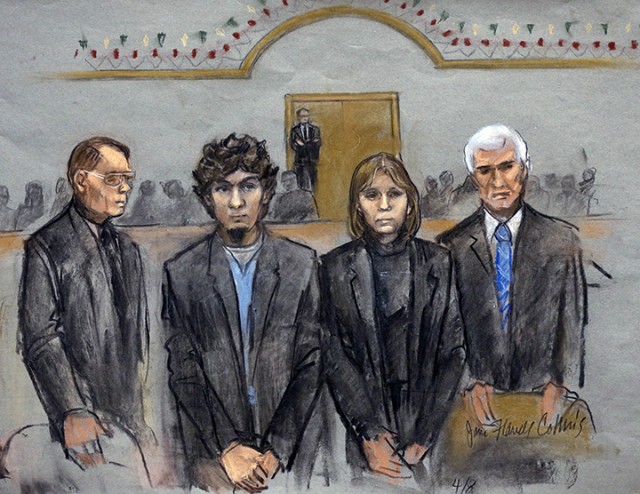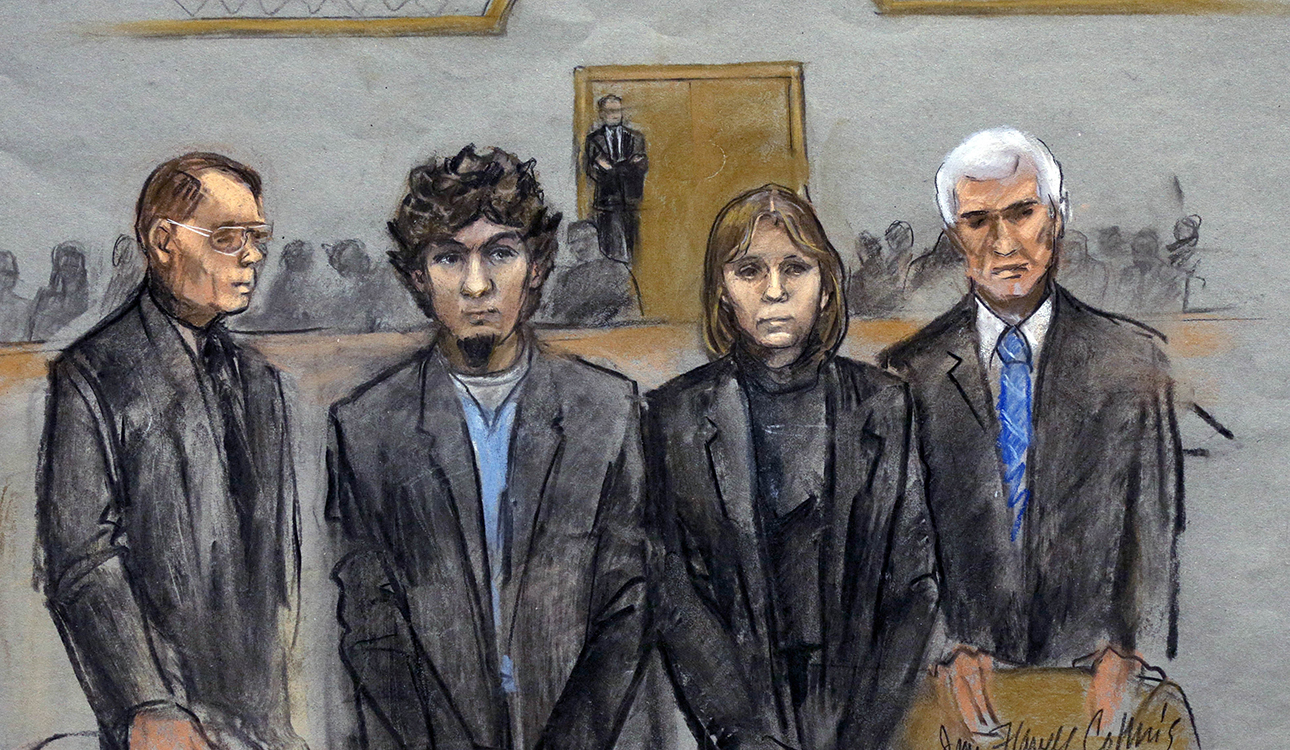
Associated Press
Denise Lavoie
Associated Press
BOSTON — The guilt phase of Boston Marathon bomber Dzhokhar Tsarnaev’s trial was considered a slam dunk for prosecutors, especially after his lawyers bluntly admitted during opening statements that he participated in the deadly 2013 attack.
But the outcome of the next phase of the trial is much more difficult to predict. The same jury must decide whether Tsarnaev, 21, should be put to death or spend the rest of his life in prison. The penalty phase begins today in U.S. District Court.
Debate over whether Tsarnaev should get the death penalty intensified recently after the parents of Martin Richard, an 8-year-old boy who was killed in the bombings, urged federal authorities to consider taking death off the table in exchange for Tsarnaev spending the rest of his life in prison and giving up his rights to appeal.
“We know that the government has its reasons for seeking the death penalty, but the continued pursuit of that punishment could bring years of appeals and prolong reliving the most painful day of our lives,” Bill and Denise Richard said in a statement to The Boston Globe last week.
A married couple who lost limbs in the attack also asked the U.S. Justice Department not to pursue the death penalty.
“If there is anyone who deserves the ultimate punishment, it is the defendant. However, we must overcome the impulse for vengeance,” Jessica Kensky and Patrick Downes said in a statement to the Globe Sunday.
Kensky and Downes were newlyweds when two bombs exploded near the marathon finish line on April 15, 2013, killing three people and injuring more than 260. They each lost their left leg. Kensky endured more than a dozen surgeries before having her severely damaged right leg amputated in January.
Others have said they favor the death penalty for Tsarnaev. Liz Norden, whose two adult sons each lost a leg in the bombings, said nothing short of execution is warranted.
“He destroyed so many families that day,” she said. “I want the ultimate justice.”
Legal experts differ on whether the pleas from victims will persuade the federal government to drop its bid for the death penalty.
“If the Justice Department seriously takes into consideration the feelings of the family members in this case, they have every justification to take death off the table,” said Robert Dunham, executive director of the Death Penalty Information Center.
But New York Law School professor Robert Blecker said the Justice Department has to consider the larger question of denouncing terrorism.
“They’ll go forward with it. It will not change the decision. Denunciation is a legitimate purpose,” Blecker said.
Public opinion polls have shown that a majority of Boston-area residents oppose the death penalty for Tsarnaev.
Massachusetts abolished the state death penalty more than 30 years ago, but Tsarnaev is charged under the federal death penalty statute. The 12 jurors who will decide his fate all told a judge they would be willing to consider the death penalty if they believed the facts of the case and the law called for it. They also said they would consider life in prison.
Prosecutors are expected to emphasize the brutality of the bombings by calling more survivors to testify. During the first phase, several survivors testified about devastating injuries, including lost limbs.
Others described watching friends and loved ones die.
If one juror votes against the death penalty, Tsarnaev will get a life sentence.






